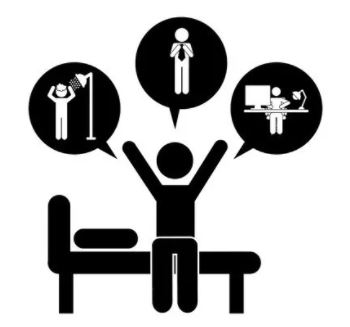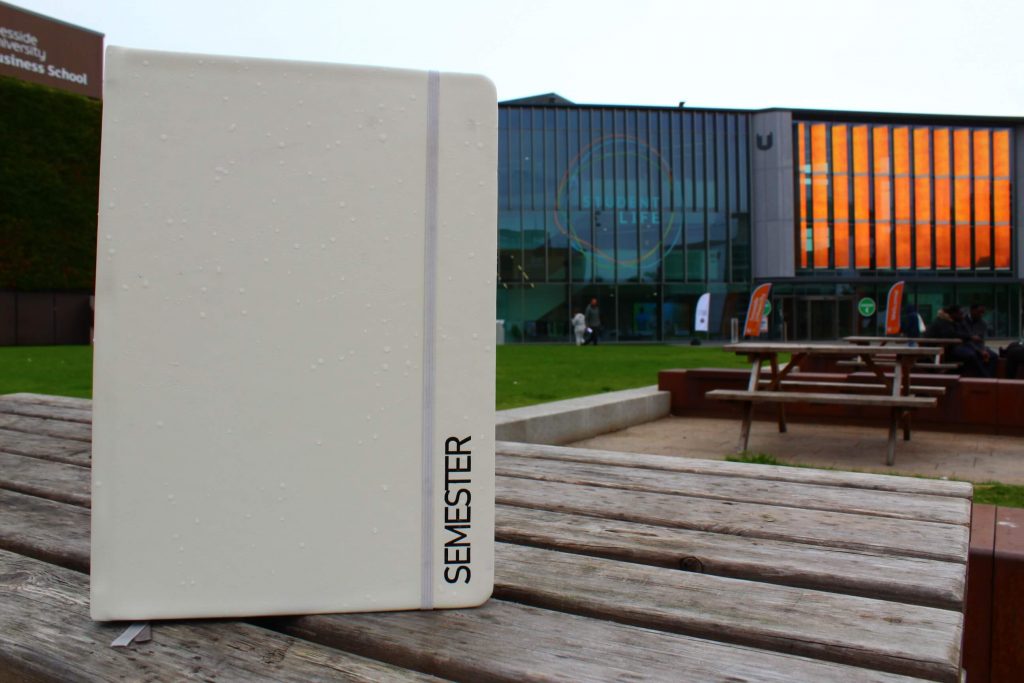

Routines are generally seen as a good thing to have, however it is also very easy for them to be seen as boring and monotonous to most. To help you in deciding whether a routine or set of routines is good for your future studies we’ve put together some of the facts…
The Good Stuff…
Starting with the good. It is clear that routines can have their benefits such as helping you to study better, be more productive and work more efficiently. Getting more done with less effort will also reduce stress significantly, helping your mental wellbeing.
Another benefit that is not typically linked with a “routine” is goal setting. If you create a detailed goal with a roadmap linked to it (as you would in the Semester Student Planner) you are essentially creating the foundation of a routine. By defining the work that needs to be complete to reach your goal you are setting out what work needs to be done on a daily basis.
“Procrastination is thief of time.”
Edward Young
Another significant benefit of creating routines in your life is that you won’t procrastinate anywhere near as much. And lets be honest, procrastination is probably the single highest factor in students not achieving their full potential! By implementing a routine or a productivity hack that has a routine method to it, you create a standard and structure of “I will do x, y and z within this time frame. The routine can be something as simple as time blocking of study using productivity methods such as Podomoro or Zen to Done (Both of which can be found in the Semester Productivity Handbook) or even completing blocks of task in the same order based upon your own working style.
“The secret of your future is hidden in your daily routine”
Mike Murdock
Finally, the main takeaway for the benefits that a routine can provide you is that a routine can take out much of the unpredictability and stress of a day which is very common as a student. With the ever growing pressure and stress placed on students a solid routine or set of routines provide you with the foundation to thrive in any situation. By implementing a simple foundation you are creating a significant amount of personal control which will allow you to improve your focus, organization and productivity.
Other benefits of having a daily routine include…
- You’ll be much more efficient in reaching your goals.
- You’ll have a much greater chance of finding your “flow state” (more about this in a future blog).
- You will create more structure in your studies.
- You’ll complete assignments and study tasks more reliably, giving yourself more time to enjoy the Uni life and coming across as a higher achiever to your peers.
The two best routines to start with now…
#1 is most definitely a morning routine. This truly is the foundation of your day. If you wake up on the right foot with a stellar morning routine you have a much higher chance of being productive and efficient during the day. So how to you create and implement a morning routine….
- Make it personal to you: There are books out there like the 5am club which provide some great insight, however it you aren’t an early starter then it’s never going to work.
- Start small: Routines can be hard to get started with so start small and build up from there.
- Write it down in your planner: As you develop your routine write it down in your planner and work out how much time you need on a morning to complete your routine.
- Commit: Once you have your routine, commit to it. It takes on average 66 days for a new habit to become automatic (a routine) so stick at it.
For me (Nathan) a morning routine was transformational. I rise at 5am most mornings and take back control of my day before the many responsibilities of every day life take hold! As I said, 5am certainly isn’t for everyone but a morning routine personal to you should be.
The #2 most important routine is your “Shutdown Routine”. This one is much simpler and is one that is more focused on supporting your mental wellbeing. After a busy day of assignments, revision or even socialising you need to have a routine where you can “quiet the noise” in your head. For this we ask you to follow a similar process to the above, making the routine personal to you, however you should instead focus on what your daily wins were for the day and if you felt there were some “negatives” during the day, what did you learn from them? At the end of each daily page in the Semester Student Planner we ask you to list out your Daily Wins and What did I Learn Today. Include these within your evening routine and you will soon find that you can go to sleep in a much more positive frame of mind.


Now, as the title suggests, routines aren’t all good. Just like becoming obsessed with productivity isn’t. When you create any routine in your day, it will provide benefits, however you must be flexible with the way you use them. To keep this section short here are a few summary points of when routines go wrong and what you should avoid when creating and implementing your new routines.
- Becoming resistant to change. Don’t allow this to happen as you will miss out on spontaneous opportunities leading to greater stress.
- You can become boring. Having too much routine within your life will just lead to every day seeming the same. You will get tired of it and people will think your boring.
- Being too reliant on your routines may lead to anxiety and fear if people ask you to step outside of them. This is where ensuring they are flexible is key.
- A routine that is too rigid can stifle creativity. Some people may think that creativity is not necessary, however it is one of the keys to standing out regardless of what course you are studying.
So there you go. The good the bad and even sometimes the ugly side of routines! Our challenge to you is to now go out and create your morning and evening routine. Start simple, but begin to take daily action in implementing this. In the coming weeks we will be starting to provide our subscribers with free downloads which will support the creation of routines as well as implementing productivity hacks. Subscribe now to be part of the cohort that receives these transformational tools!
And as always, please share your stories with us, we would love to hear about how your new routines are transforming your life both personally and academically.
#LetsGrowTogether

Share this post
Related Post


Harnessing the Power of Planning: A Strategic Tool for Overcoming ADHD Challenges in Study
In recent years, Attention Deficit Hyperactivity Disorder (ADHD) diagnoses have seen a significant uptick across the globe, with the UK

Navigating the Winter Academic Chill: Strategies for Student Success
As winter blankets the world in a chilly embrace, students find themselves facing a unique set of challenges. The final

Time Management Tips for Students: A Successful Year Ahead
Introduction: Time management is a critical skill for students to master. Effective time management can make the difference between a



